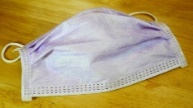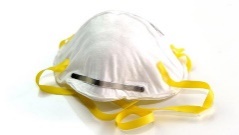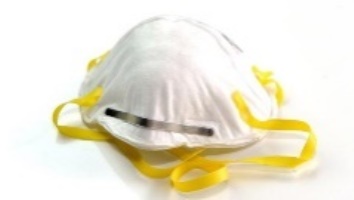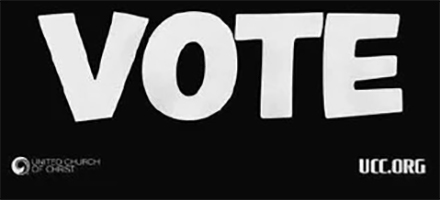Do Face Masks Dangerously Reduce Oxygen Intake?
United Church of Christ – Wider Church Ministries
Humanitarian Development Team
Coronavirus (COVID-19) Daily Briefing
Barbara T. Baylor, MPH – Temporary Health Liaison
Do face masks dangerously restrict oxygen intake?
TRUE OR FALSE? Prolonged use of COVID-19-related face masks causes health problems due to breathing in too much exhaled carbon dioxide.

ANSWER: MOSTLY FALSE
According to the fact-checking service Snopes, some people with pre-existing respiratory illnesses may face health issues with improper or prolonged use of tight-fitting masks, such as N95 respirators. But people wearing cloth or surgical masks are in little to no danger of breathing in unhealthy amounts of carbon dioxide.
Where did this idea that face masks are dangerous come from?
 One report is of a driver who crashed his SUV into a pole in New Jersey on April 23. He said he had passed out due to his wearing an N95 mask for too long. The investigating officers confirmed he was the lone occupant of the car and reportedly believed he passed out due to “insufficient oxygen intake/excessive carbon dioxide intake.” Since this time, the post has been shared more than 2,700 times and received hundreds of comments, with a few sharing their own experiences of feeling smothered by this type of mask.
One report is of a driver who crashed his SUV into a pole in New Jersey on April 23. He said he had passed out due to his wearing an N95 mask for too long. The investigating officers confirmed he was the lone occupant of the car and reportedly believed he passed out due to “insufficient oxygen intake/excessive carbon dioxide intake.” Since this time, the post has been shared more than 2,700 times and received hundreds of comments, with a few sharing their own experiences of feeling smothered by this type of mask.
The Lincoln Park, N.J., Police Department felt compelled to clarify on April 24, writing:
“NJ residents should absolutely continue to follow the directives regarding face coverings put in place by our Governor. As it relates to this specific incident, we reiterate that police officers are not physicians and do not know the medical history of every person we encounter.
“It was stated in the original post that we ‘believed’ the excessive wearing of an N95 mask was a contributing factor to this accident. While we don’t know this with 100% certainty, we do know that the driver had been wearing an N95 mask inside the vehicle for several hours and ultimately passed out while operating the vehicle…. It is certainly possible that some other medical reason could’ve contributed to the driver passing out.”
“We are not trying to cause public alarm or suggest wearing an N95 mask is unsafe,” the police department said. “The original point of the post was to state that in most cases, the wearing of this type of mask while operating a vehicle with no other occupants is unnecessary…. Motorists and the public alike are reminded that while masks should be used in public settings to help prevent the spread of COVID-19, they are not necessary outdoors when social distancing can be maintained, and especially not necessary when driving a vehicle with no additional occupants.”
One of the first newspapers to pick up on the story was the Vanguard, in Nigeria, which added it comment that prolonged use of tight face masks may cause hypoxia, a condition in which the tissues of the body are starved of oxygen.
It’s true that breathing in high levels carbon dioxide is dangerous for the body.
According to the National Institutes of Health (NIH), inhaling high levels of carbon dioxide (CO2) may be life-threatening. In addition to dizziness, hypercapnia (carbon dioxide toxicity) can also cause headache, vertigo, double vision, inability to concentrate, tinnitus (hearing a noise, like a ringing or buzzing, that’s not caused by an outside source), seizures, or suffocation due to displacement of air.
In the Health magazine interview, infectious disease expert Amesh A. Adalja, MD, senior scholar at the Johns Hopkins Center for Health Security in Maryland, says that someone wearing an N95 mask for a prolonged period of time may have alterations in their blood chemistry that could lead to changes in level of consciousness if severe.
Dr. Adalja does say that N95 masks are uncomfortable to wear and they may restrict your breathing, especially for those who are already subject to breathing difficulties, such as a smoker, obese people, or individuals with asthma, COPD, emphysema or other lung issues.
According to Stanford News, N95 masks filter out 95 percent or more of small particulate matter from the air, including the COVID-19 virus, which as a result, makes breathing harder. It’s estimated that oxygen intake can be reduced anywhere from 5 to 20 percent, which can lead to dizziness and lightheadedness. As always with any product, follow the directions, whether on the package or from reputable sources such as the Centers for Disease Control and Prevention (CDC).
The CDC does not recommend that the general public wear N95 respirators to protect themselves from respiratory diseases, including coronavirus (COVID-19). These critical supplies must continue to be reserved for health care workers and other medical first responders.
The N95 is still the recommended face mask for health professionals, because it has the capacity to filter out very small particles that could possibly contain the virus.
The CDC recommends that the public use simple cloth face coverings or regular surgical face masks when in a public setting to slow the spread of the virus, since these will help people who may have the virus and do not know it from transmitting it to others. For more information, see the CDC’s Recommendation Regarding the Use of Cloth Face Coverings, Especially in Areas of Significant Community-Based Transmission.
There is less of a chance of breathing issues with cloth face coverings (either store-bought or homemade) as they are not tight around the face. Make sure your mask covers your nose and mouth but isn’t so tight you really can’t breathe. If you continue to feel like your airways are cut off, consider other possible causes, such as a panic attack, which can trigger sudden feelings of suffocation and breathlessness.
The Food and Drug Administration administration counsels, “People with chronic respiratory, cardiac, or other medical conditions that make breathing difficult should check with their health care provider before using an N95 respirator because the N95 respirator can make it more difficult for the wearer to breathe.”
Additional References
CDC: Use of Cloth Face Coverings to Help
Related News
COVID-19 racial, ethnic disparities affect kids, too
The legacy of systemic health and social inequities has put people from racial and ethnic groups at...
Read MoreACA repeal would worsen racial, ethnic health disparities
United Church of Christ – Wider Church Ministries Humanitarian Development Team Coronavirus...
Read MoreHealth a Key 2020 Election Issue
United Church of Christ – Wider Church Ministries Humanitarian Development Team Coronavirus...
Read More

